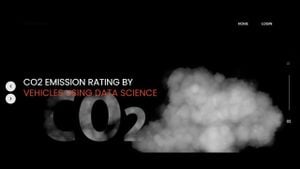Thailand is witnessing significant political developments as investigations involving former police officer Pol Col. Krawat Hanpradit heighten public scrutiny over corruption and misconduct. On February 24, 2025, Krawat formally submitted inquiries to the National Anti-Corruption Commission (NACC) following allegations stemming from his previous responsibilities as deputy commander of Chonburi Provincial Police. The controversy ignited as Krawat found himself embroiled in claims relating to improper management of law enforcement duties, particularly around the low-handling of criminal investigations.
Krawat has vehemently denied any wrongdoing, insisting on the importance of maintaining transparency and accountability to uphold public trust. "We need transparency and accountability to maintain public trust as we handle these inquiries," he stated, reflecting his commitment to clarifying his actions during his tenure. This incident not only brings to light concerns surrounding internal policing ethics but also highlights the acute pressures faced by officials under public scrutiny.
Contrastingly, the Ministry of Industry is making strides with effective environmentally friendly practices, especially concerning toxic waste management. On the same day, the ministry announced significant cost savings from collaborative efforts with Win Process Co., which has undertaken the safe removal of hazardous waste materials from Rayong. This initiative reportedly eliminated over 7,000 tons of waste at just 4 million baht, as opposed to initial cost estimates of around 70 million baht. This considerable saving showcases the ministry's proactive approach under the leadership of Minister Aeknat Phromphan.
During his tenure, Aeknat has emphasized partnerships with private companies like TPI Polene, fostering private sector engagement to address pressing environmental challenges. "We are saving the national budget significantly by working smartly with Win Process to remove hazardous waste," noted Pangpol Yotmuangjae, Spokesman for the Ministry of Industry. The handling of this situation reflects not only fiscal responsibility but also environmental stewardship, illustrating how effective collaborations can yield substantial public benefits.
While domestic developments shape Thailand's political and environmental landscapes, international standards are also tightening around corporate sustainability reporting, particularly within the European Union (EU). Reports indicate the EU is moving forward with regulations aimed at implementing comprehensive sustainability frameworks for corporations. These reforms focus on enhancing transparency, environmental protection, and human rights throughout supply chains, which resonate with calls from various stakeholders within Thailand seeking similar pathways.
The integration of stringent sustainability regulations is seen as pivotal to strengthen corporate competitiveness and accountability on the international stage. A European Commission proposal anticipated improvements to the corporate sustainability reporting directive expects industries to disclose impacts on both society and the environment. Several influential industry leaders have voiced support for maintaining substantial regulatory frameworks, contributing to long-term economic competitiveness and ensuring responsible business practices.
Stakeholders are urging Thai industries to adopt similar stringent measures as they develop sustainability policies and engage with environmental standards. This shift may precipitate significant changes across various sectors, pressing corporations to align with international sustainability norms.
Locally, the urgency for reforms is echoed by the need to combine environmental practices with citizen welfare continuously. The successes of Krawat's case and Aeknat’s efficiencies underline the potential positive outcomes from integrating accountability and responsible practices at governance levels. This paradox of combating corruption on one front and promoting sustainable practices on another seals the narrative of Thailand's political atmosphere.
Conclusively, the political developments within Thailand, unique environmental approaches to waste management, and core international sustainability regulations paint a vivid portrait of the challenges and shifts within the nation's governance. The resolution of Krawat's inquiries will observably shape future public trust, whereas effective waste management initiatives signal promising practices worthy of emulating.



